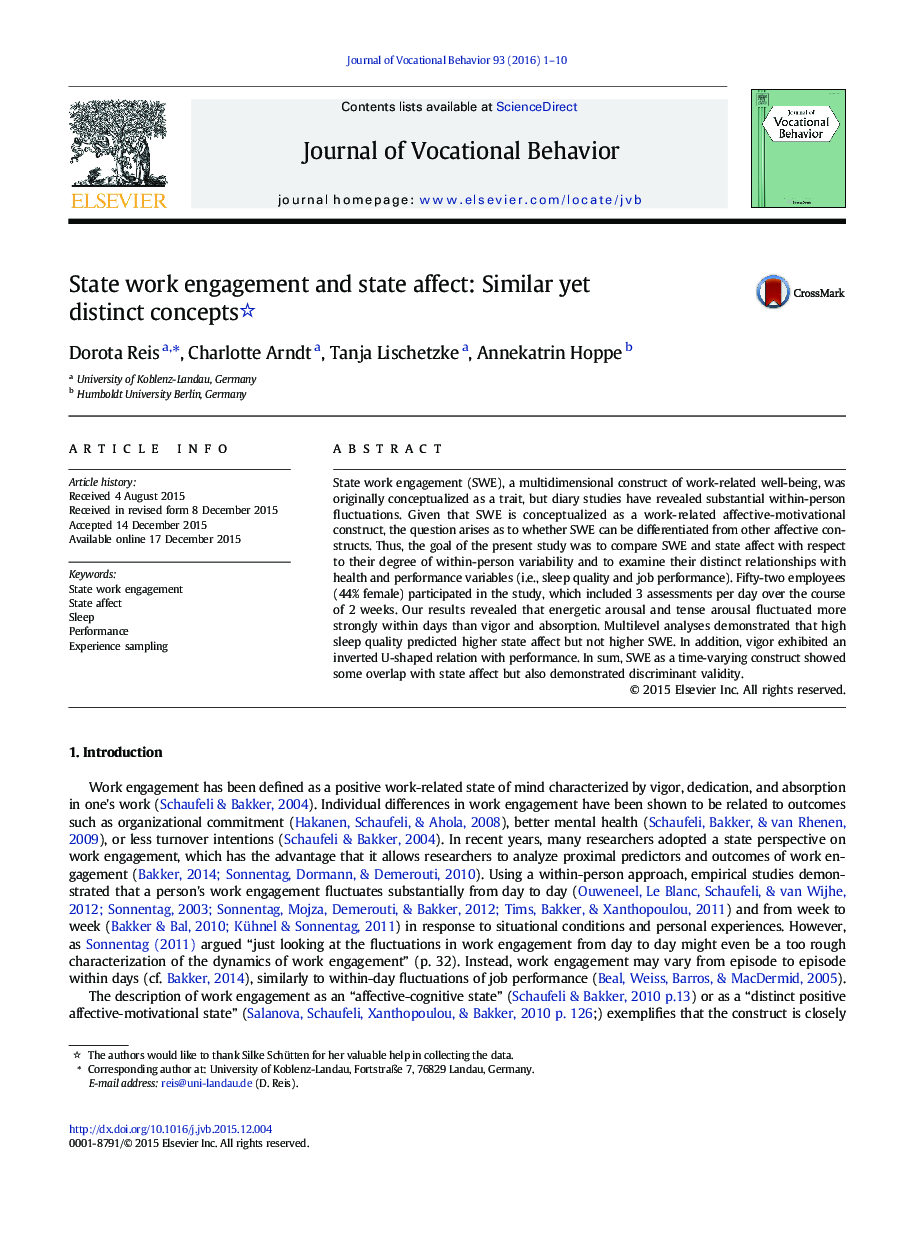| Article ID | Journal | Published Year | Pages | File Type |
|---|---|---|---|---|
| 7247566 | Journal of Vocational Behavior | 2016 | 10 Pages |
Abstract
State work engagement (SWE), a multidimensional construct of work-related well-being, was originally conceptualized as a trait, but diary studies have revealed substantial within-person fluctuations. Given that SWE is conceptualized as a work-related affective-motivational construct, the question arises as to whether SWE can be differentiated from other affective constructs. Thus, the goal of the present study was to compare SWE and state affect with respect to their degree of within-person variability and to examine their distinct relationships with health and performance variables (i.e., sleep quality and job performance). Fifty-two employees (44% female) participated in the study, which included 3 assessments per day over the course of 2Â weeks. Our results revealed that energetic arousal and tense arousal fluctuated more strongly within days than vigor and absorption. Multilevel analyses demonstrated that high sleep quality predicted higher state affect but not higher SWE. In addition, vigor exhibited an inverted U-shaped relation with performance. In sum, SWE as a time-varying construct showed some overlap with state affect but also demonstrated discriminant validity.
Keywords
Related Topics
Social Sciences and Humanities
Business, Management and Accounting
Marketing
Authors
Dorota Reis, Charlotte Arndt, Tanja Lischetzke, Annekatrin Hoppe,
